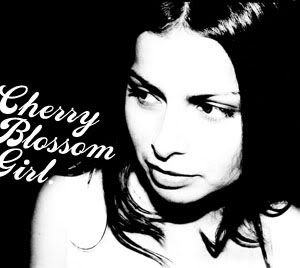Agent Orange Case for Millions of Vietnamese Is Dismissed
Unbelievable. I'm so angry about this. And the injustice continues to roll on. I hate the U.S. govt. for ever having released such poison on the world. There is so much retribution this country has to go through to wash away the destruction it created during Vietnam. Sadly, I see the same situation happening now in Iraq as in Vietnam. That is, the U.S. has no business being involved in such a horribly unjustified war. Period. Fuck war and fuck the U.S. govt. for never representing their citizens. It's this govt. who decides to have a war and it's humanity that pays the price. Man, I hate war so much. Arghh!
Agent Orange Case for Millions of Vietnamese Is Dismissed
By WILLIAM GLABERSON
Published: March 10, 2005
In a decision that could close a controversial Vietnam-era chapter of American history, a federal judge in Brooklyn today dismissed a damage suit filed on behalf of millions of Vietnamese that claimed American chemical companies committed war crimes by supplying the military with the defoliant Agent Orange.
Advertisement
The civil suit, filed last year, had sought what could have been billions of dollars in damages and the environmental cleanup of Vietnam. The suit drew international attention for its claims about Agent Orange, which was widely used by the American military to clear the jungle until 1971.
The suit claimed that the defoliant, which contained the highly toxic substance dioxin, left a legacy of poison in Vietnam that caused birth defects, cancer and other health problems and amounted to a violation of international law.
But Judge Jack B. Weinstein of the United States District Court sided with the chemical companies and the Justice Department, which argued that supplying the defoliant did not amount to a war crime.
"No treaty or agreement, express or implied, of the United States," Judge Weinstein wrote, "operated to make use of herbicides in Vietnam a violation of the laws of war or any other form of international law until at the earliest April of 1975."
Because of sovereign immunity, the United States government was not sued.
In 1975, President Gerald R. Ford adopted a national policy renouncing the first use of herbicides in warfare. Also in 1975, the Senate ratified an international Geneva accord dating from 1925, which outlawed the use of poisonous gases during war.
The suit claimed that because of the dioxin in Agent Orange, spraying it amounted to the use of poison during war.
But Judge Weinstein concluded in a 233-page decision that even if the United States had been a Geneva signatory during the Vietnam War, the accord would not have barred the use of Agent Orange.
"The prohibition extended only to gases deployed for their asphyxiating or toxic effects on man," said the decision, issued in response to a motion for dismissal by the defendants, "not to herbicides designed to affect plants that may have unintended harmful side-effects on people."
William H. Goodman, a lawyer for an association of Vietnamese that filed the suit as a class action, said the decision would be appealed. He said the United States Supreme Court could eventually decide the issue.
"The judge missed the point," Mr. Goodman said. "He ruled as a matter of law that what these defendants manufactured was not a poison, whereas even these manufacturers recognized that it was at the time."
The companies have long said that dioxin was an unwanted byproduct of the manufacture of Agent Orange, but claimed that there was no conclusive link to the many serious health problems blamed on Agent Orange.
Over many decades, American veterans of the Vietnam War filed suits making health claims similar to those now being pressed by the Vietnamese. Judge Weinstein also handled those cases.
Seven American chemical companies settled the veterans' cases for $180 million in 1984.
The same chemical companies, including Dow, Monsanto and Hercules, were sued in the Vietnamese case.
Spokesmen for some of the companies applauded the decision today.
"We believe the defoliant saved lives by protecting allied forces from enemy ambush and did not create adverse health affects," said Scot Wheeler, a spokesman for the Dow Chemical Company.
Glynn Young, a spokesman for Monsanto, said Judge Weinstein's decision was correct.
"The judge said they didn't make the case," Mr. Young said. "That's a very difficult message for a lot of people to understand because there's so much emotion wrapped up in cases like this one."
Though he ruled against the Vietnamese plaintiffs, Judge Weinstein agreed with many arguments put forth by their lawyers. He rejected arguments of the Justice Department that the court had no place in reviewing military strategies adopted by President John F. Kennedy and his successors.
Saying "presidential powers are limited even in wartime," Judge Weinstein said American courts had the power to decide whether presidential decisions about the conduct of a war violated international law.
"In the Third Reich," the decision said, "all power of the state was centered in Hitler; yet his orders did not serve as a defense at Nuremberg," where war crimes trials were conducted after World War II.
Similarly, he rejected an argument from the chemical companies that they were shielded by rules that typically protect military contractors from suits for providing war materiel.
Clearly writing to influence courts in the future, Judge Weinstein used sweeping language and employed extensive citations to historical, military, scientific and legal writings.
If supplying contaminated herbicide had been a war crime, Judge Weinstein wrote, the chemical companies could have refused to supply it. "We are a nation of free men and women," he wrote, "habituated to standing up to government when it exceeds its authority."


0 Comments:
Post a Comment
<< Home